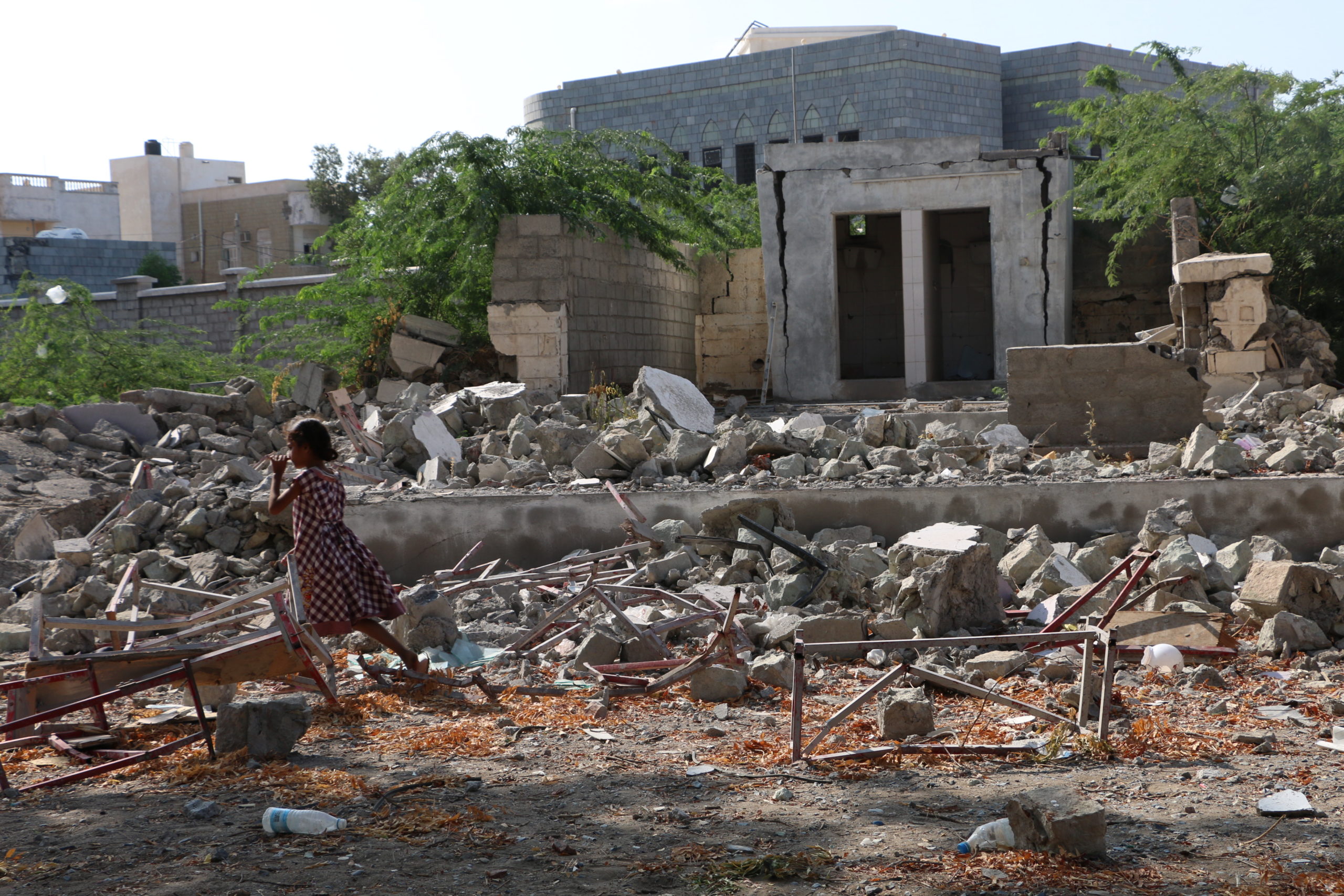DOWNLOAD PDF
THE ISSUE
The U.S. must end its complicity in the Saudi-UAE led coalitions violations in Yemen, some of which amount to war crimes, by banning arms sales to the coalition.
The discovery of U.S. munitions amongst the rubble of civilian markets, homes, hospitals and hotels has been a constant throughout Yemen’s devastating war. Amnesty International has repeatedly found evidence that U.S.-made munitions have been used by coalition forces to target civilians. The evidence is overwhelming: investigations by United Nations bodies, media outlets and numerous other human rights organizations have reached similar conclusions. In one example from August 2017, a U.S. manufactured bomb was dropped in a residential area, leading to 16 civilian deaths in Yemen’s largest city, Sana’a. As a result of the airstrike, five-year-old Buthaina was the sole survivor in her family; the bomb killed her parents and five siblings.
Although a host of European countries have suspended arms transfers to the coalition, the U.S. government continues to provide it with military support and arms sales. U.S. manufactured arms have also been diverted into the hands of Huthi and other armed groups fighting in Yemen. U.S. military support has included:
- Mid-air refueling support that facilitated airstrikes, including on civilian infrastructure
- Logistical support and assistance identifying targets for aerial bombardment
- Sale of 30 F-15 fourth-generation fighter jets, 84 combat helicopters, 110 air-to-surface cruise missiles and nearly 20,000 guided bombs.
All warring parties have openly flaunted international law, causing massive civilian casualties. Amnesty International has documented 36 airstrikes across six different governorates by the coalition that appear to have violated international law. These airstrikes have claimed more than 500 civilian lives and appear to have deliberately targeted civilian infrastructure such as hospitals, schools, markets, and mosques.
TALKING POINTS
- In 2015, Saudi Arabia and eight other states – backed by the U.S., U.K., and France – began airstrikes against a rebel group known as the Huthis in Yemen. The fighting has resulted in a humanitarian crisis of historic proportions.
- 22 million Yemenis must rely on humanitarian assistance to survive and half that number are at risk of famine.
- 400,000 children are at risk of starving to death.
- According to the World Health Organization, Yemen is struggling to contain the worst cholera outbreak in the world.
- A blockade of Yemen’s ports of entry by the Saudi-U.A.E. led coalition has restricted aid from entering the country, triggering a famine which threatens the lives of 12 million people.
RECOMMENDATIONS
- The United States must immediately suspend weapons sales to Saudi Arabia and the UAE.
- The President must call on the State Department to produce a report on violations of international law by all actors in the Yemen conflict and a separate report on human rights in Saudi Arabia.
FOR MORE INFORMATION, PLEASE CONTACT:
Philippe Nassif
Advocacy Director, Middle East & North Africa
(202) 768-5547
